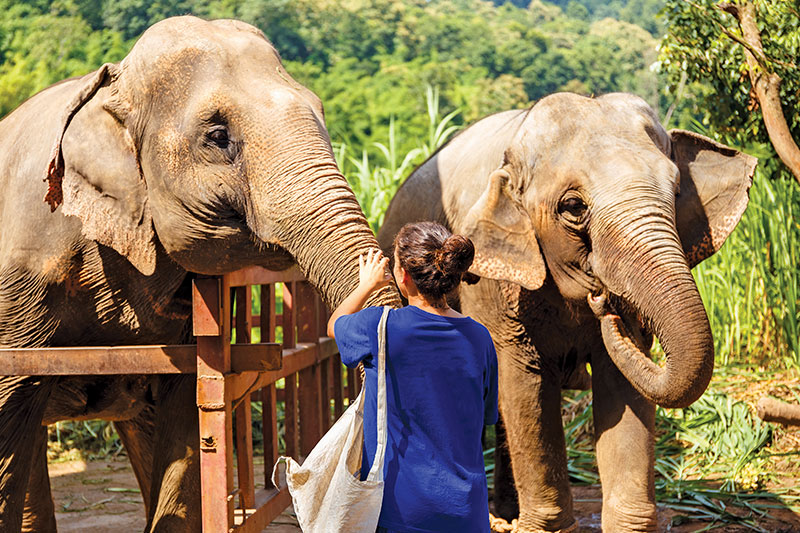
Travel becomes transformation when each step leaves nature stronger than before
Words: Phoowadon Duangmee
Photos: Shutterstock
Wildlife tourism is shifting. Forget the quick photo ops and box-ticking – today’s travellers want to connect, give back, and leave wild habitats and nearby communities stronger than they found them. And across Asia, a new kind of experience is waiting.
Imagine strolling with elephants through dappled forests, helping chop fruit for their lunch, or simply watching their daily rituals of bathing, eating and playing. Gone are the days of elephant rides and circus-like performances.
With their gentle, expressive eyes, swaying heads and rounded bodies, elephants often seem like oversized toddlers – splashing in water, chasing one another, and offering curious trunks to visitors.
In Chiang Mai and Lampang, sanctuaries are rewriting the script on elephant tourism by channelling entry fees into food, space, and medical care for these childlike giants.
Prefer beaches to jungle? In Krabi, Phuket and the Maldives, snorkelling is no longer just about sightseeing – it’s an opportunity to restore and protect vibrant reefs. Guided by marine biologists, visitors glide through coral nurseries, learn how to plant baby corals by hand, and witness the reef’s slow, kaleidoscopic comeback. Every dive becomes a story of repair and wonder.
Back on the beach, turtles steal the show. Few moments rival the sight of a hatchling’s first frantic crawl towards the surf. In Phuket and Phang Nga, conservation centres invite visitors to witness incubation, hatching and even that life-defining dash to the ocean. Each visit directly funds community-led projects to keep Thailand’s turtle population alive and thriving.
Even birdwatchers have their sanctuary. In Buri Ram, wetlands echo with the calls of rare saurus cranes – a tall, red-crowned and stately spectacle that reminds visitors of the delicate balance between rural life and wilderness.
From elephants to coral gardens, turtles to cranes, the message is clear: you’re not just passing through, you’re part of the story. These encounters linger long after the trip ends – not just as snapshots in your social-media feed, but as profound experiences that protect our shared natural wonders for the generations ahead.
